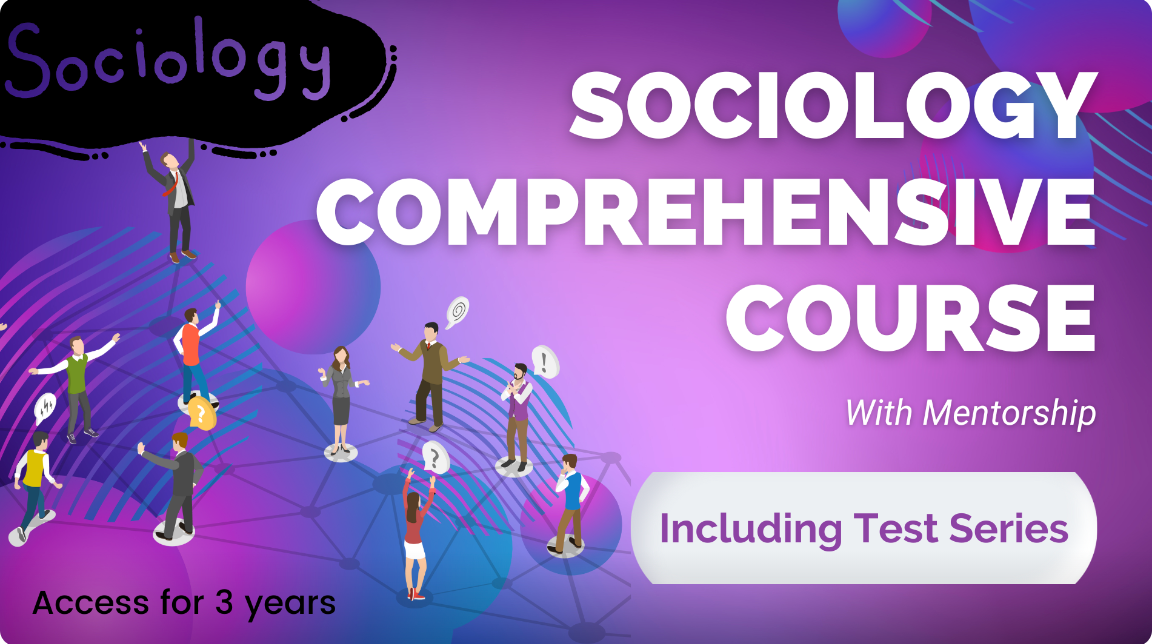Questions
- The history of all hitherto existing societies is the history of class struggles. Explain. (20 Marks)
- According to Marx, how are human beings alienated from their human potential and what does he suggest to change this? (20 Marks)
Download Model Structures PDF
Model Structures
Q1. The history of all hitherto existing societies is the history of class struggles. Explain. (20 Marks)
Introduction
Marx and Engels at the beginning of The Communist Manifesto quotes:
- “The history of all hitherto existing society is the history of class struggle. Freeman and slave, patrician and plebeian, lord and serf, guild-master and journeyman, in a word, oppressor and oppressed, stood in constant opposition to one another, carried on an uninterrupted, now hidden, now open fight, a fight that each time ended, either in a revolutionary reconstitution of society at large, or in the common ruin of the contending classes” (Marx and Engels 1848, 482).
Main Body
- In this quote, Marx and Engels famously argue that the conflict between classes is the engine of history. They add however, that at times it is hidden and at times it is open.
- Here they are touching upon the fluid relationship between the classes driven by the process of recognising class interest, a point that has become increasingly mystified as the ruling class aims to govern through consent.
- Marx used historical materialism to trace the changes in society. He believed that
Western societies had developed through four main stages and he envisaged 2 stages that would emancipate labourers from suffering:- Primitive communism
- Ancient society Master Slave
- Feudal society Lord Serf
- Capitalist society Capitalist worker
- Socialist society- All workers
- Communist society- Renounced power, enlightened and free
- As per Marx, the development of society is through the process of class conflict.
- During each historical epoch, the labour-power required for production was supplied by the subject class, that is slaves, serfs and wage labourers respectively. And Fruit was enjoyed by the ruling class. The domination of one class over the other leads to class conflict.
- He gave the following two types of class consciousness-
- Class in itself- People share similar relations with means of production. This is
objective and Marx called it false consciousness - Class for itself- It is the collective class consciousness of people acting for their
common interest. This will cause conflict and revolution.
- Class in itself- People share similar relations with means of production. This is
- The production process also develops due to changes in technology, resulting in its improvement. This leads to changes in the class structure as classes become obsolete with an increase in production techniques. New classes are then formed. Replacing the old classes. This leads to further class conflict.
However, this theory was criticized as mentioned below-
- Max Weber criticizes Karl Marx for monocausal pluralism.
- Ralph Daharendarf rejects the homogenization theory of Marx and argues that conflict situations are not the same across the industry –working class homogenization cutting across industry is a rare phenomenon.
- Pierre Bourdieu: Marx highlights only economic capital –social & cultural capital not emphasized.
- Raymond Aron Argues that there is no distinction between socialism & capitalism. Both are speaking about mass production.
Conclusion
- Give some examples of recent conflicts and conclude that it is critical to utilise class analysis to understand contemporary social movements.
Q2. According to Marx, how are human beings alienated from their human potential and what does he suggest to change this? (20 Marks)
Introduction
- Define Alienation
- A Sense of disconnect from aspects - 4 factors (process, product, self and society), brought about by the conditions of labor present in a capitalist society.
Main Body
- Four Stages of Alienation -
- From Produce - they sell their labour to produce not for themselves but for the capitalist.
- From Process - they relinquish control over the means of production, which they
clearly do not own. - From Self - they are estranged from his ability to create what he desires of his own volition and is thus kept from his human potential.
- From Society and other labors - conditions of labor present in a capitalist society, meagre interactions with fellow beings.
- Through the above stages humans get alienated from their potential.
- In alienation dead labour i.e. capital dominates the living labour
- Reasons for alienation
- Repetitive kind of work
- Economic infrastructure constraints creative potential of human beings
- Workers are subjected to impersonal mechanisms such as law of supply and demand
- Examples - IT professionals working for a longer time without any creative efforts get alienated, Workers in the assembly lines of Car mfg expected to follow daily routine procedures, thus making them cogs in a machine, Working at lower wages, Refusal of rights to entitlement to women cashing alienation, etc.
- Marx's Solution to Alienation (de-alienation)
- Haves and have-nots → Alienation of have-nots → objective opposition of
interests (CLASS IN ITSELF) → Subjective awareness (CLASS FOR ITSELF) - Class polarisation → Revolutionary forces unleashed → Dictatorship of
Proletariat → Advanced Communism (egalitarian society with equal control
over forces of production) → Alienation Disappears.
Conclusion:
- Relevance of theory of Alienation.

